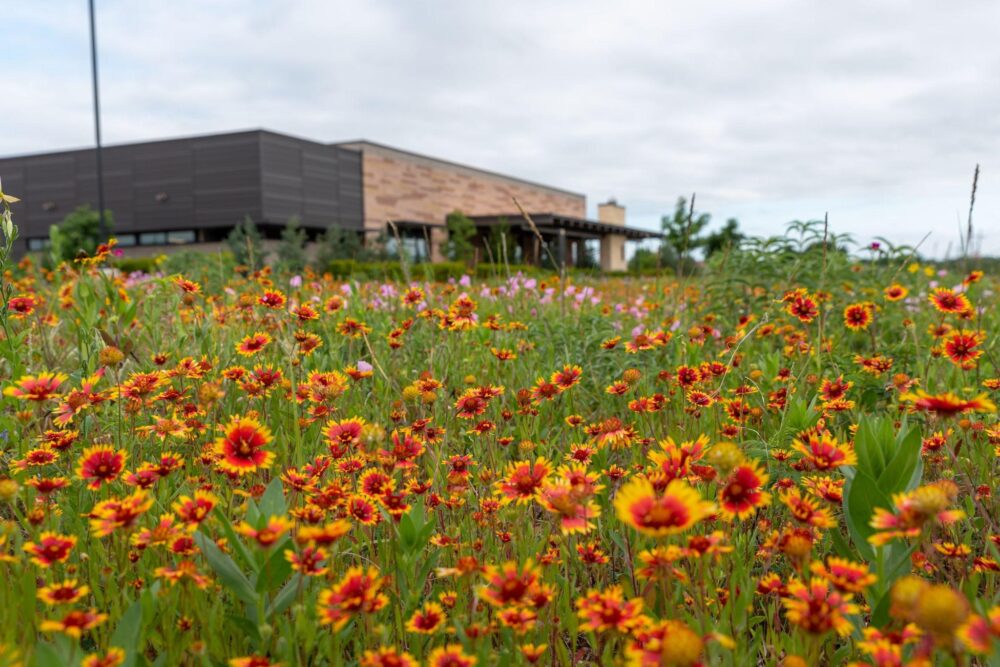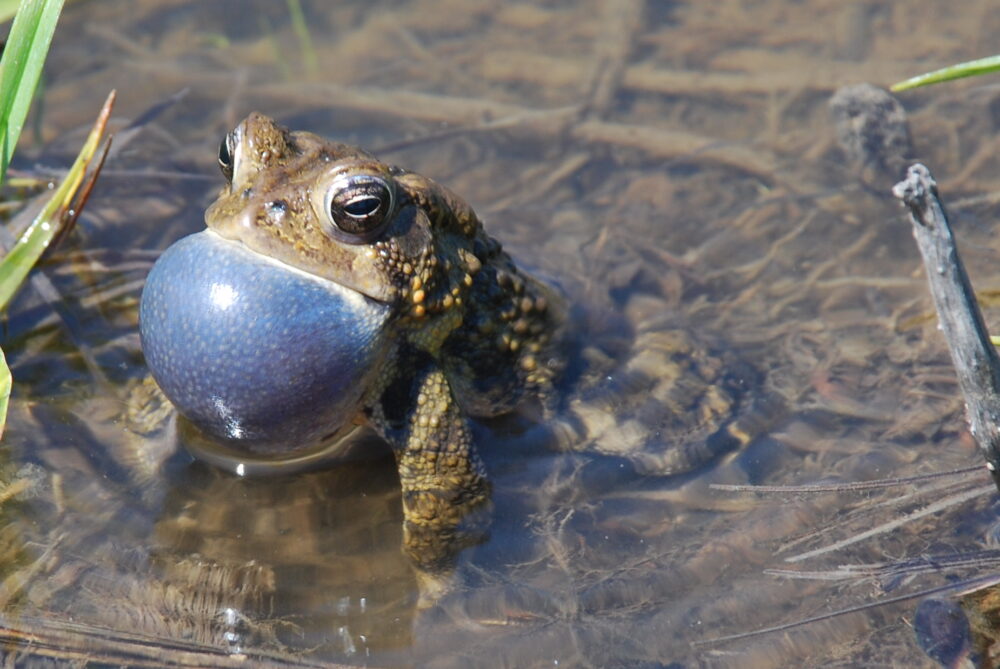We have much more to do and your continued support is needed now more than ever.
Breaking Routines: Outdoor Learning in Texas School Districts
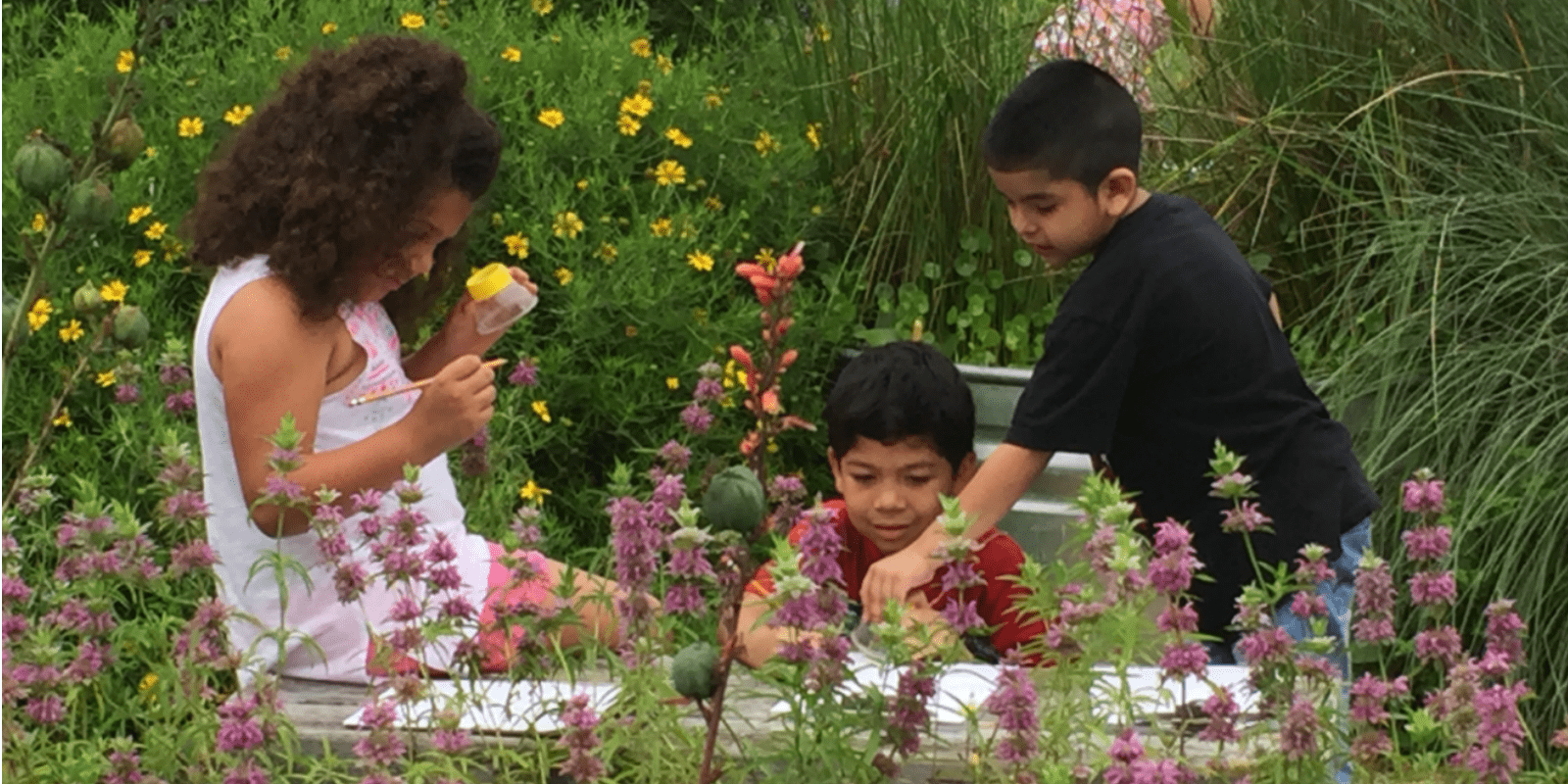
The new school year is here and teachers at nearly 600 Texas schools certified as National Wildlife Federation Schoolyard Habitats are poised to create memorable outdoor learning experiences for their students. A Schoolyard Habitat provides wildlife with food, water, shelter and a place to raise young and provides students with outdoor spaces to incorporate wildlife into their studies.
When school districts support teachers in pursuing outdoor learning, a culture of wildlife stewardship begins. We interviewed three independent school district (ISD) employees across Texas to share their thoughts on the value of developing young stewards. Here is what they told us:
Can you think of a time when you, or a student, had an inspiring interaction with wildlife? Why is it important to you that children have these experiences?
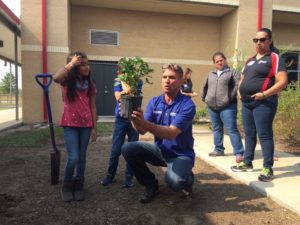
Allen Williams (Pharr San Juan Alamo ISD): The great outdoors inspires our students and teachers to become better thinkers and stewards. It’s simple, the greater the plant diversity a school campus has, the greater the learning opportunities become. A magical connection occurs when childrens’ hands touch young plant roots as they place them into their garden. The connection strengthens as students return to their plants and discover the fascinating insects, birds and reptiles that are now interacting with them.
Anne Muller (Austin ISD): Being outside provides a context for learning and brings concepts alive for students. You could learn about the metamorphosis of a lady bug in class, or you can go outside and see a lady bug larva turn into a pupa or hatch into an adult right before your eyes. The personal connection to nature also comes with many documented benefits including health, wellbeing, and academic outcomes.
Donelle Williams (Houston ISD): As a child, I would pick blackberries in the fields with my grandmother. I learned why blackberries grew in certain areas, during a specific season. I learned how other organisms like birds, skunks, and raccoons loved to eat them too, like humans do. Nature is always available for learning experiences – it’s vast, varied, and free! Schoolyard Habitats can also support community resilience in the face of challenges.
How does outdoor learning help students succeed academically?
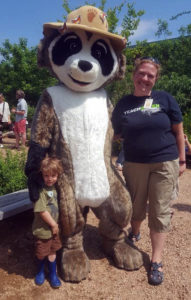
Anne: When we get outside to learn, we give our brains and body a break from routine. We engage our senses and increase physical activity, which leads to increased ability to focus and succeed in the classroom. The outdoors can also be a place to test whether a student understands a concept. If students can find examples of mechanical or sound energy in a garden, for example, you know they really understand what they are learning.
Donelle: In terms of accountability, one of our state’s benchmark exam categories is reporting category 4, Organisms and Environments — outside is the best place to learn more about the standard within this strand. I encourage the inclusion of outdoor learning components into our curriculum and professional development opportunities.
If you were speaking to a teacher who has never worked with National Wildlife Federation, what would you want them to know?
Allen: If a teacher wants to engage students with plants, wildlife and the environment then National Wildlife Federation is a wonderful partner! Their Schoolyard Habitat certification program is a motivating and guiding tool for administrators and teachers to transform underutilized grounds to ecological edens.
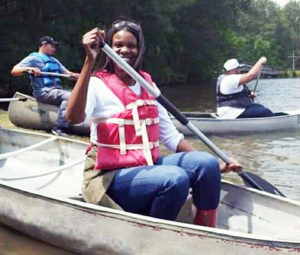
Anne: National Wildlife Federation provides fantastic training and support for teachers to empower their students to be our next generation of leaders. Through Eco-Schools USA, students work with their school community to identify areas of need and then develop school projects to implement change. Eco-Schools USA, grants and trainings, Habitat Steward volunteers, and the amazing staff help support myself, our teachers, and our students.
Donelle: I tell teachers to leverage the National Wildlife Federation partnership and look for deliberate ways to incorporate their Monarch Mission curriculum and Eco-Schools USA programs into the student learning experience.
















